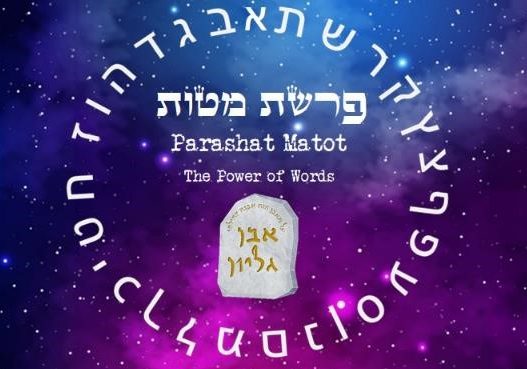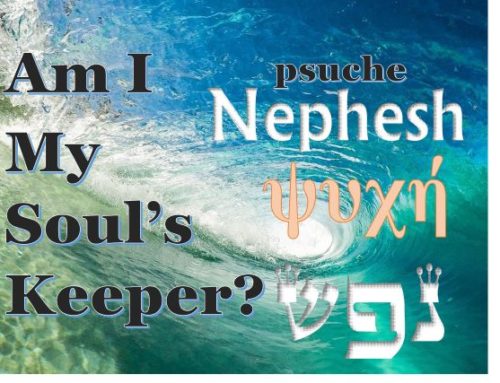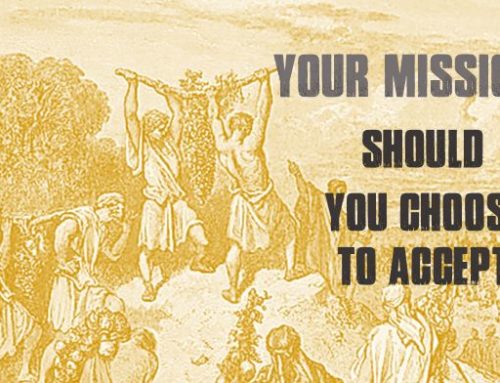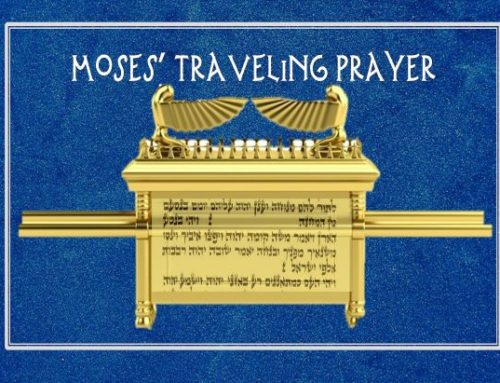Our reading for this week is a double portion, Matot (Numbers 30:1-32:42) and Masei (Numbers 33:1-36:13). The power of words
“Then Moses spoke to the heads of the tribes concerning the children of Israel, saying, “This is the thing which the Lord has commanded: If a man makes a vow to the Lord, or swears an oath to bind himself by some agreement, he shall not break his word; he shall do according to all that proceeds out of his mouth.” Numbers 30.1-2 NKJV
What power is encoded in our words? Physicists now question whether the “stuff” of our universe is matter and energy, or information? Information theory, as the building blocks of creation goes back to 1948, to mathematician Claude Shannon’s pioneering paper, “A Mathematical Theory of Communication”. Such a theory is not new, Jewish tradition describes the 22 Hebrew letters as building blocks of creation. (Ber. 55a).
The writer of Hebrews said, “By faith we understand that the worlds were framed by the word of God, so that the things which are seen were not made of things which are visible.” Heb. 11.3 NKJV The Psalmist said, “The voice of Adonai hews out flames of fire.” Ps. 29.7 TLV. The Word of the Adonai is the substance of and sustainer all things together, light, life, the world, and the world to come. In Parashat Matot, we see Moses admonition regarding the words that proceed out of our mouth. Yeshua, likewise said,
“But I say unto you, That every idle word that men shall speak, they shall give account thereof in the day of judgment. For by thy words thou shalt be justified, and by thy words thou shalt be condemned.” Mat. 12.36-37 NKJV
Just as words proceeded from the “mouth of God,” to create, connect, and communicate, so He has made us in his image with the ability to speak. Moses reminds us of the necessity to fulfill our oaths and promises.
I. Words to Create Worlds?
What is the power of our words? Some note the Hebrew words spoken at a Jewish wedding, “With this ring, you are consecrated to me according to the law of Moses and Israel“, as words of consecration, promise, and creation. Those vows begin the creation of a new world, a family, potential generations who will look back to that initial oath of covenant. This is the power of words.
Our words can also create an atmosphere peace. How often has the inspiring speech of a coach or commander changed the outcome. Proverbs tells us “The tongue of the wise heals.” Prov. 12.18. The atmosphere changes with our words. The destinies of children are influenced by words. For this reason, Yeshua warned, “every idle word that men shall speak, they shall give account…” Even our idle, unthinking words have the power to heal or hurt, build or break.
II. Words to Connect Community
Our words can be a glue, forming the connective fiber of families, tribes, and nations. Keeping an oath is vital. Sometimes oaths made centuries ago will continue for generations.
The name United States is translated into Hebrew as Artzot HaBrit, literally, “Lands of the Covenant”. Those states are bound by a common agreement, a Constitution of words. Though that agreement has served them well, that nation’s common oath is being tested as factions disavow their founding fathers. If they remove the memory of those men and women, what feeling of connectedness or obligation will they have to be faithful to the founding principles and oath of the Constitution?
Moses Instructed the Leaders:
Moses instructed the leaders of the “matot”, tribes, to see the binding, connective, strength in their oaths. Later in the Parashah, the tribes of Reuben and Gad petitioned from Moses to settle on the eastern side of the Jordan River, the Land of Gilead. Moses, saw danger in their request; the only solution was to make a binding promise, one connecting them to the rest of Israel. Reuben and Gad agreed to go first into battle when the tribes took possession of Canaan. Moses admonished all saying a man “shall do according to all that proceeds out of his mouth.” Num. 30.2 NKJV
Warning to Reuben and Gad:
He further warned Reuben and Gad, “But if you do not do so, then take note, you have sinned against the Lord; and be sure your sin will find you out.” Numbers 32. 23 NKJV Commitment and promise were the cohesive glue binding the various tribes, forming unity. Finally, we see that power in our words to call on our Creator.
III. Words to Call on our Creator
God spoke the worlds and man into existence, and He invested into man the very ability to communicate with our creator. From the moment that God spoke with Adam in the Garden, to Moses who spoke with God face to face, to the Word made flesh and dwelling among us. God is calling us to call upon him. We don’t need to make promises or oaths to approach God, but we do need to call upon him. The prophet Hosea instructed us, “Take words with you, And return to the Lord. Say to Him, “Take away all iniquity; Receive us graciously, For we will offer the sacrifices of our lips.” Hosea 14.2 NKJV The Creator of the Universe, whose words spoke our existence awaits our very words of repentance.
Conclusion
In conclusion, Moses warned Israel to perform all the words that proceed from their mouth. Those words have the power to create. They also have the power to connect. God’s Word holds the universe together, our words hold families, communities, and even nations together. And with our words we call on our Creator. In closing, we need to ask, Did Yeshua, the Messiah, forbid His disciples to make vows or to swear oaths?
Forbid Vows or to Swear Oaths?
“Again you have heard that it was said to those of old, ‘You shall not swear falsely, but shall perform your oaths to the Lord.’ But I say to you, do not swear at all: neither by heaven, for it is God’s throne; nor by the earth, for it is His footstool; nor by Jerusalem, for it is the city of the great King.” Mathew 5: 33-35 NKJV
To answer, we must take the verse in context, and ask, how His disciples understand Yeshua’s instruction? Yeshua tells us to perform our oaths to the Lord, and not swear falsely. Secondly, he says “I say to you, do not swear at all…” This referred to invoking God’s name or holy places to strengthen our words. Yeshua’s admonition regarded the seriousness of our words. Certainly the disciples DID NOT interpret Yeshua teaching to forbid oaths. Also Paul himself made a binding vow in Acts 18.18. Jacob, (James), the leader of the Jerusalem Community, encouraged Paul to pay the sacrifice price to support four believers in fulfilling their vow, Acts 21.23. And, Yeshua Himself, made a binding perhaps Nazarite vow, in Mt. 26. 29, Mk. 14.25 Lk. 22.18.
We are not forbidden to make vows, but both Moses and Yeshua, warn us that we must fulfill the words that we speak. May the Lord bless you, and “may the words of our mouth and the meditations of our heart be pleasing to the Lord.” Ps.19.14.
Shavua Tov
If you would like to contact us CLICK HERE
If you would like to contact Shemen Sasson congregation CLICK HERE
